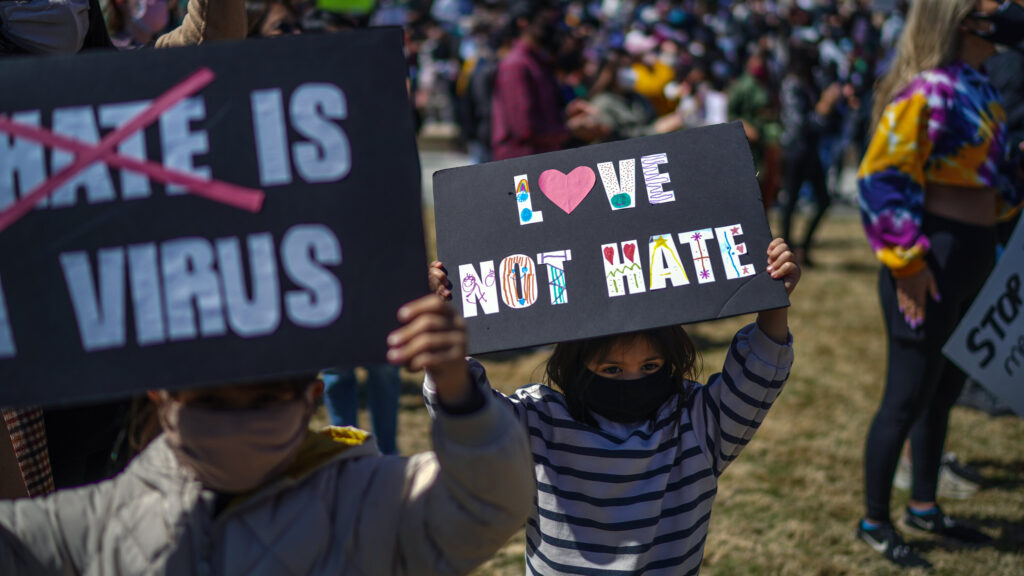
Audience
- Sentiment: Negative
- Political Group: Liberal
- Age Group: 18-34
- Gender: Both
Overview
- Ye faces backlash for antisemitic social media posts and provocative merchandise.
- An AI-generated video highlighting antisemitism raises concerns about technology’s role in spreading hate.
- The article calls for responsibility and dialogue against hate speech in the digital age.
The Backlash Against Ye: When Words and AI Collide
In the world of music and entertainment, few figures have sparked as much conversation and controversy as rapper Ye, who was once known as Kanye West. Recently, Ye found himself in the center of another intense backlash after making antisemitic posts on social media and promoting a controversial merchandise line that included T-shirts featuring swastikas. These actions caused many people to react strongly, voicing their disdain and disappointment.
You’re probably wondering why someone with such fame and talent would engage in behaviors that hurt and offend so many people. To understand this situation better, we need to delve into what exactly happened, why it matters, and how technology, particularly artificial intelligence (AI), played a role in amplifying these issues.
What Happened?
Ye has been no stranger to controversy throughout his career, which would lead many to believe he’s just being provocative for the sake of attention. Still, his recent actions crossed a line that many people found unacceptable. Antisemitism, or prejudice against Jews, has a long, painful history, and promoting hate in any form can have serious consequences. Social media being such a powerful tool for communication means that once something controversial is posted, it can spread quickly and widely, just like a wildfire.
In his posts, Ye made statements that many found deeply offensive and harmful. The reaction was swift: people from various backgrounds raised their voices against him, demanding accountability and calling out his behavior. This is the power of social media—it allows individuals to express their opinions and rally support for important causes, like standing against hate speech and discrimination.
As if Ye’s actions alone weren’t troubling enough, another layer of this situation emerged: a video created using AI technology that featured various celebrities, including Scarlett Johansson and Jerry Seinfeld, juxtaposed against offensive imagery. The video sparked outrage and highlighted the dangers of technology being misused in a society that increasingly relies on digital platforms for communication and entertainment.
The AI Video Debate
The AI-generated video wasn’t just an artistic exploration; it had a more serious agenda. The aim was to raise awareness about antisemitism and educate people about the impacts of hate speech. However, it also opened up a debate about the responsibilities of creators, celebrities, and even AI itself in shaping public discourse. Johansson, who happens to be Jewish, spoke out against hate speech while also emphasizing the risks that come with AI technology. If a program can generate videos that spread hateful messages, how do we control it? How do we prevent such content from reaching people who might take it to heart?
Celebrities have a unique position in society. They have a platform and, often, a large following, allowing them to influence thoughts and opinions. When they speak out against hate, they set a powerful example for their audience, particularly younger fans who may look up to them. But when they appear in situations that could be misconstrued or exploited to spread hate, it raises questions about their accountability.
For instance, if a famous actor or musician’s image can be manipulated into appearing in a video that promotes hate, is it their fault? Is it the fault of the AI technology that created it, or does that fall on the shoulders of those who chose to share and promote the video? This can be a slippery slope, leading to a broader conversation about the implications of AI technology in our society.
The Impacts of Hate Speech
Hate speech can have serious implications for individuals and society. It can create divisions, perpetuate harmful stereotypes, and even lead to violence. The consequences can be especially severe when prominent figures spread such sentiments because they have the ability to influence millions. This is why it is vitally important for celebrities to be responsible with their messaging.
When it comes to antisemitism, the wounds run deep. Many people today may not fully understand the historical trauma associated with it, including the Holocaust, in which six million Jews were murdered during World War II. Remembering this history is crucial for ensuring that such atrocities don’t happen again. Promoting hate in any form diminishes the memory of those who suffered and can encourage ignorance and intolerance.
In Delving into Ye’s controversial past, it’s inspirational to see how many people have chosen to stand against such ideologies. Advocacy groups, community leaders, and everyday citizens have come together to speak out against antisemitism. They’ve used social media platforms to educate others, share personal stories, and build support networks. Initiatives that promote understanding, dialogue, and compassion are crucial steps in overcoming hate.
The Need for Responsibility in a Digital Age
As we navigate through this digital age, we also need to think about how technology influences our daily lives. Social media and the rise of AI have transformed the way we communicate and interact with each other. They can empower us, allowing for the rapid spread of ideas and movements, like those against antisemitism. But, they also come with the risk of spreading misinformation, lies, and hate.
The responsibility for what we share and consume online is a collective effort. We need to be mindful of the content we engage with and share. It is essential to confirm the source of information before adding our voices to the conversation. Perhaps you’ve come across something online that troubled you. Did you take a moment to question its credibility before sharing it with others? Honest conversations about the technology we use are necessary in forming a healthy society.
Conclusion: A Call for Dialogue
As we’re witnessing the outrage against Ye and the broader conversation surrounding hate speech, it’s evident that this is a crucial moment for reflection. We must think critically about the privileges and responsibilities that come with having a platform—whether it’s as a celebrity or as an individual with social media.
We can draw from this situation to create dialogues about understanding, compassion, and social justice. It’s our responsibility to stand up against hate and work toward a society where diversity is celebrated rather than feared.
So, what do you think? How do you believe celebrities should handle their platforms in addressing societal issues like antisemitism? Have you ever felt the urge to speak out against something unjust you’ve seen online? Feel free to share your thoughts below!






